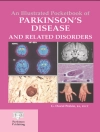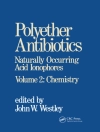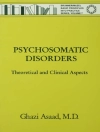Filaggrin gene mutations are common in Europeans and their descendants, as well as in Asians, reaching a prevalence of up to 10%. Filaggrin proteins are crucial for skin homeostasis as their metabolites maintain skin hydration, keep the skin p H low, and provide protection against solar radiation. FLG mutation carriers suffer from dry and scaly skin and have an increased transfer of allergens and chemicals across the epidermis. Moreover, they have 10% higher serum vitamin D levels, potentially affecting the propensity to develop other diseases. FLG loss-of-function mutations represent the strongest risk factor hitherto discovered for atopic dermatitis and are major predisposing factors for related asthma and hay fever. This textbook provides comprehensive and detailed coverage of the effects of FLG mutations in health and disease (cutaneous and non-cutaneous) and also discusses the basic science, epidemiology, management, and future research areas.
Mục lục
BASIC SCIENCE: Mutations in the Filaggrin Gene.- Morphology of Normal and Filaggrin Depleted Epidermis.- Function of Filaggrin and Its Metabolites.- Influence On Skin Lipids.- Inflammatory Driven Depletion of Filaggrin Proteins.- Animal Models.- In Vitro Models.- EPIDEMIOLOGY: Prevalence Rates In Different Races.- Gene-Environment Interactions.- Heterozygous Advantage.- FILAGGRIN AND SKIN DISEASE: Ichthyosis Vulgaris and Other Disorders of Cornification.- Atopic Dermatitis.- Allergic Contact Dermatitis.- Irritant Contact Dermatitis.- Hand Eczema.- Psoriasis.- Disorders In The Seborrheic Areas.- Infections.- Cancer and Tumors.- Autoimmune and Connective Tissue Disorders.- Pigmentation Disorders.- Sweat Gland Disorders.- Nails and Hair.- FILAGGRIN AND NON-CUTANEOUS DISEASE: Asthma.- Rhinitis.- Food Allergy.- Diabetes.- Cardiac Disease.- Inflammatory Bowel Disease.- Ophthalmic Disease.- Rheumatoid Arthritis.- Cancer.- Vitamin D.- MANAGEMENT.
Giới thiệu về tác giả
Jacob Thyssen has worked in Dermatology for 10 years and holds Ph D and Dm Sci degrees from the University of Copenhagen. He has published 190 articles and 10 book chapters. He has received international awards for his research, including the LEO Pharma Research Foundation for best investigator <45 years in the Nordic countries. His research has focused on dermatitis, allergies, and the skin barrier. He has been a research fellow in the USA, visiting Harvard Medical School and UCSF. He is a regular speaker at international meetings. Jacob Thyssen enjoys treating patients with dermatitis on a daily basis in the Gentofte Clinic in Copenhagen, Denmark.












